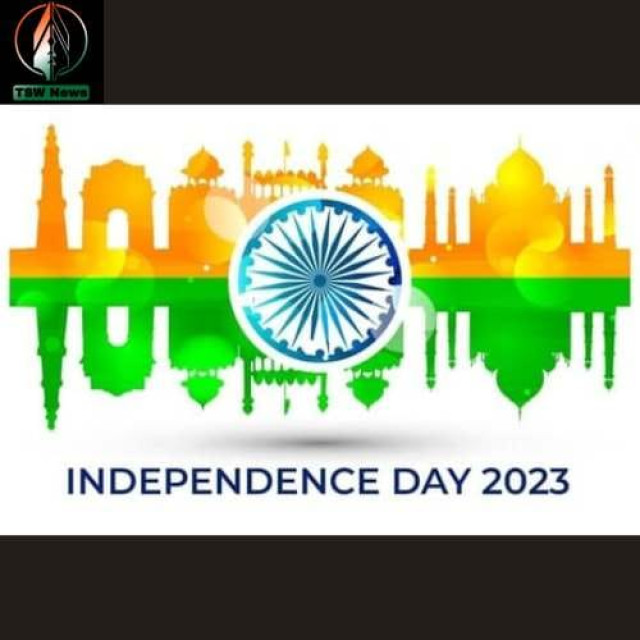77th Independence Day: A Historic Journey of Freedom
- Posted on August 14, 2023
- News
- By Stiti pragnya padhy
- 269 Views

"India is the cradle of the human race, the birthplace of human speech, the mother of history, the grandmother of legend, and the great-grandmother of tradition."
India's epic history, unfolding across centuries, portrays a gripping tale of highs and lows, ancient civilizations, mighty kingdoms, diverse cultures, and the fight for freedom.
As the 77th Independence Day approaches, let’s take a look at what has made India the country it is. This timeline traces the journey of a nation that witnessed the ascent and decline of empires, the emergence of religions, and struggles for independence.
India saw the emergence of one of the greatest ancient civilizations, that being the Indus Valley Civilization, renowned for the planning of its cities and the sophistication of its sewer systems. The Indus Valley Civilization is more than just a historical event, it shaped the way of life in Bharat.

Upon the Indo-Aryans' arrival, the Vedic age dawned and saw the composition of the Vedas as well as the two great epics, the Ramayana and the Mahabharata, take place. The birth of Jainism and Buddhism, the emergence and descent of powerful empires, as well as the impact of foreign invasions further left cultural and spiritual marks on India's history.
Vasco Da Gama's arrival in India marked a turning point by paving the way for the settlement of European colonial powers like the British, Dutch, and Portuguese who had their eyes set on India's immense riches. By 1600, the British East India Company had secured trade privileges, eventually leading to British colonial dominance.
The first rays of hope appeared in 1857 with revolutionaries like Mangal Pandey and Rani Lakshmibai, during the Sepoy Mutiny, popularly referred to as the Indian Rebellion against British rule.
This incident sparked a sense of unity among the population, which was further fueled by leaders such as Dadabhai Naoroji, Gopal Krishna Gokhale, Bal Gangadhar Tilak, and Lala Lajpat Rai. The formation of the Indian National Congress in 1885 gave rise to India's dreams for self-rule and marked the beginning of India's struggle for Independence.
Under the guidance of great leaders like Mahatma Gandhi and Netaji Subhash Chandra Bose, India fought its war for freedom against British rule. Through persistent efforts in the form of nonviolent movements such as the Non-Cooperation, Civil Disobedience and the Quit India Movement, as well as the formation of Bose's Azad Hind Fauj army, the fight gained momentum.

These efforts not only intensified the demand for an end to British colonial dominance but also influenced the course India would take toward achieving its freedom.
On August 15, 1947, India's relentless pursuit of independence finally bore fruit. The feelings of the entire nation were beautifully captured by India's first Prime Minister, Jawaharlal Nehru, who remarked, "Long years ago, we made a tryst with destiny, and now the time comes when we shall redeem our pledge, not wholly or in full measure, but very substantially. At the stroke of the midnight hour, when the world sleeps, India will awake to life and freedom."
However, this event was accompanied by the partition of the subcontinent into India and Pakistan, resulting in tragic communal violence that scarred the nation's history. The revocation of Article 370 of the constitution, which granted Jammu and Kashmir special status, has added another layer of complexity to the aftermath of partition.
January 26, 1950, marked a significant milestone as India adopted its own constitution and officially became a republic, embracing a democratic framework.
Even after India achieved independence, challenges persisted. While the 1962 Sino-Indian War highlighted the unresolved border disputes with China, the 1971 India-Pakistan War led to the birth of Bangladesh and further embittered the relations between India and its neighbour, Pakistan.
In 1991, India set out on the path of economic liberalisation, which sparked rapid economic growth and modernization. Seven years later, in 1998, India's nuclear tests marked its emergence as a nuclear-armed nation, solidifying its position on the global stage.

Since then, India has continued to flourish economically, experiencing ongoing economic growth, technological advancements, and an expanding global influence.
The timeline of India's history reflects its transition from ancient civilization to a modern nation, evolving from Bharat to the Incredible India we know today. The tale of India bears testament to cultural diversity, the struggle for freedom, and the strong determination of its people, leaving an unforgettable impression on the world as a dynamic nation.
As India steps into its 77th year of Independence, it carries the weight of its rich history as well as the dreams of its future. With every passing moment, India strives to achieve what Rabindranath Tagore had envisioned, "Where the mind is without fear and the head is held high, where knowledge is free."
For more updates keep visiting our website www.topstoriesworld.com where we provide unbiased, true and top stories of the world.




